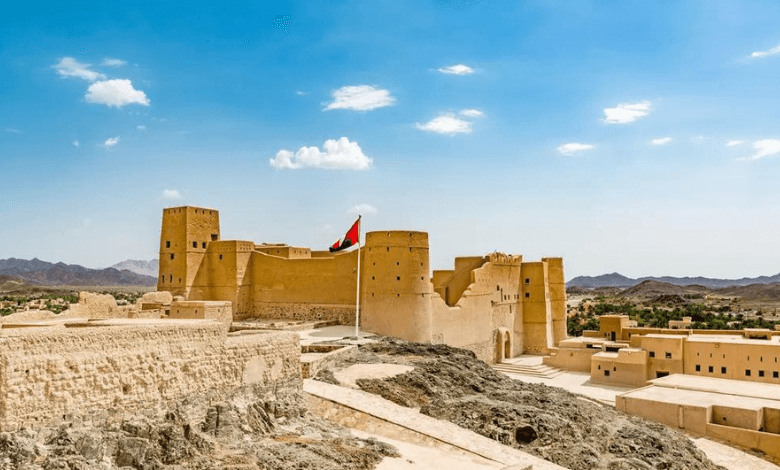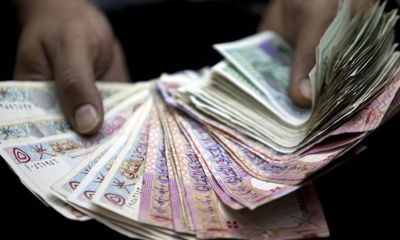In the world of culinary delights, the Southasian samosa has a transnational sibling from which it is said to have been derived: the West Asian sambusak. These delectable pastries share a similar golden-brown exterior that beckons with promises of savory goodness. Once bitten into, their crumbly golden shells give way to a riot of meaty juices in the center, a symphony of flavors that transcends borders. The samosa siblinghood is merely one of the numerous ways in which the lives of Southasians and West Asians have been generationally intertwined through their shared love for food.
Tracing Shared Heritage: From Food to Folk Tales
This culinary connection is just a taste of the broader shared heritage between Southasia and West Asia. From music to poetry, and even the folk tales we tell our children, traces of this cultural intermingling can be found woven into the fabric of our modern lives. The stories we pass down through generations often echo the historical connections between these regions. This is the parting thought one has upon finishing Seema Alavi’s extensively researched “Sovereigns of the Sea: Omani Ambition in the Age of Empire.”
Seema Alavi’s book takes readers on a captivating journey through the histories of five Omani sultans from 1791 to the 1880s. Through the lens of these sultans and the vast expanse of the Indian Ocean, the book reveals the intricate web of interconnectedness between Southasia, West Asia, and East Africa. It unravels the threads of politics, economics, Anglo-French colonialism, the slave trade, and myriad community linkages that bind these regions together.
Beyond Nation-States: A Question of Identity
As one delves into Alavi’s narrative, it becomes apparent that the strict bounds of nation-states may not adequately explain who we are today and whence we came. This introspection on identity and heritage resonates with the growing collection of scholarship on Indian Ocean history, highlighting the need to look beyond borders to truly understand our shared past.
Oman’s Enduring Relationship with the Sea
What makes “Sovereigns of the Sea” particularly compelling is its focus on the sea as an integral part of Oman’s identity. Modern Oman remains synonymous with the sea, where the cerulean blue waters meet the dramatic Hajar mountains. The book sheds light on how this maritime connection has shaped Oman’s history and continues to influence its present.
Alavi’s narrative does justice to the five sultans whose reigns are described expansively in her book: Sayyid Saïd, Sayyid Majid, Sayyid Thuwayni, Sayyid Turki, and Sultan Barghash. Instead of portraying them as pawns in the game of Anglo-French colonialism, Alavi paints each sultan as an individual embracing their agency to shape a unique political approach. Whether it was Majid and Barghash central to the slave trade or Thuwayni and Turki leveraging their relationships with the Wahhabis, these sultans left an indelible mark on history.
Alavi’s work challenges the Eurocentricity of many historical narratives by delving into the nuanced ways in which Omani rulers wielded power. The book uncovers how they strategically navigated local tribal relationships, alliances, and even scandalous personal affairs to gain political influence, challenging the notion of passive colonial subjects.
The Elusive Shadows: The Legacy of Slavery
“Sovereigns of the Sea” also delves into the painful history of the slave trade under various Omani sultans. While accessing archival information on Oman remains challenging, the book sheds light on the severity of slave experiences, highlighting the horrors of the trade and its lasting impact. The distinction between slavery in Muslim societies and the Western world is explored, revealing a complex historical narrative.
Modern Oman remains a bridge between the old and the new, much like Southasia. This cultural kinship extends to shared beliefs in djinns and historical practices such as holding durbars. The book places Oman within a significant temporal context, as it navigates the period from the 1800s, close to modern history but not entirely contemporary.
The book touches upon key historical events that influenced modern Oman, including the Dhofar Revolution of the 1960s, which led to significant changes in the country. The modernization efforts of Sultan Qaboos bin Said and the influx of Southasian migrants during the oil boom are discussed, highlighting Oman’s evolution.
Southasians play a pivotal role in Oman’s contemporary society, with diverse communities contributing to various sectors. From logistics to healthcare and white-collar jobs, Southasians have become an integral part of Oman’s fabric. However, challenges such as the two-tier visa sponsorship system and human rights concerns persist.
Oman’s role in global affairs often goes unnoticed. The book highlights Oman’s involvement in brokering the nuclear deal between the United States and Iran and its continued mediation efforts, showcasing its significance on the international stage.
In an era marked by polarization, “Sovereigns of the Sea” reminds us of our shared context and heritage. It prompts us to appreciate the commonalities that connect us, from languages to food and clothing. Just as samosas and sambusak share similarities despite hard borders, our shared history enriches our lives and fosters diversity.
Also Read : Secretive Saudi-Yemen Talks: A Breakthrough in Peace Efforts?
As Seema Alavi’s book takes readers on a journey through time and across seas, it leaves us with a deeper understanding of the fluid forms of nationhood, identity, and culture in Southasia, West Asia, and beyond. It encourages us to savor the richness of our shared history and celebrate the bonds that unite us across borders.






















